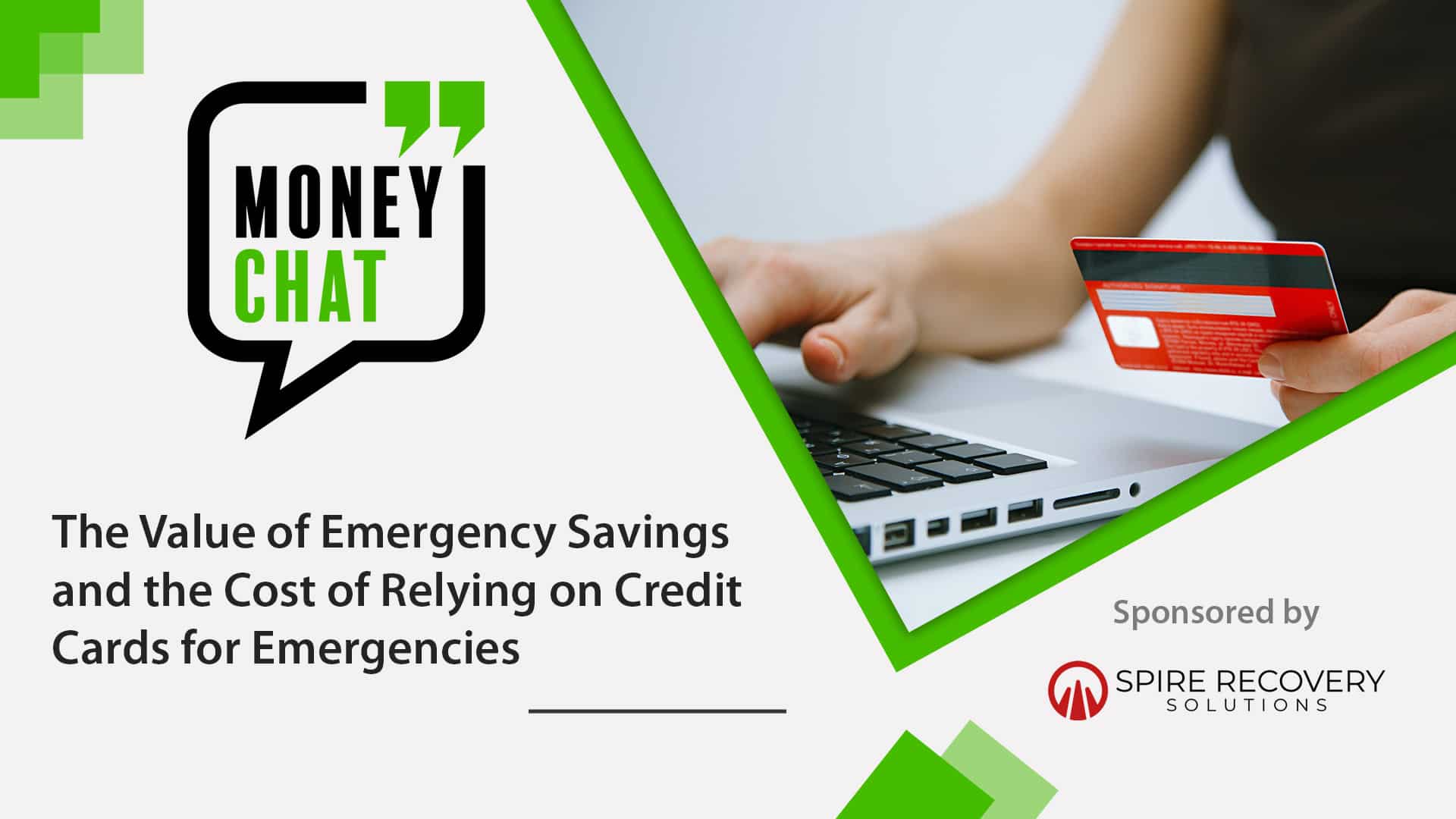
What Are Fintech Loans, and How Do They Affect You?
Fintech is an evolving discipline in the world of consumer financial services. Much like all technology-related fields, the last 20 years of rapid expansion have led to a new wave of technology-first financial institutions working hard behind the scenes to utilize all available data—not just traditionally available data—to determine the best people to issue loans to.
In this Money Chat, we will help you understand what fintech and fintech loans are, how they impact consumers, and what benefits/drawbacks they may have.
What Is Fintech?
Fintech is defined as computer programs and other non-traditional technology used to support or enable banking or financial institutions. Expanding off of this term, fintech is now most commonly applied to non-traditional banking institutions. While established legacy banking organizations like Chase and Citi Bank actively use technology to better issue loans, mortgages, and credit cards, newer and smaller financial institutions are more heavily utilizing technology and data to expand their organizational reach to non-traditional bank users.
Fintech Loans
In the world of fintech innovations, Fintech Lending and Fintech Loans have begun shifting focus away from walking into a bank for a loan. Fintech’s focus is to allow quick access to loans through computers and mobile devices. Fintech lenders are firms that operate online and may use “non-traditional data,” including social media presence, rental payments or utility payments, to help determine borrowers’ loan worthiness.
Non-traditional data is the data that the three major credit companies—TransUnion, Equifax, and Experian—don’t necessarily use to calculate credit scores. This data can be financially related (like on-time rental property payments, utility payments, or cash flow statements) or non-financially related (like your social media and internet browser history).
The Major Benefits to Fintech Loans
Because of the more open nature of fintech loans, many consumers disenfranchised by the traditional banking community are now able to quickly get loans for cars, homes, and other products they need to keep themselves and their families afloat. But wider access isn’t the only major benefit:
Easy Applications
One of the most important aspects of fintech loans is the application process. Thousands of consumers across the country are turned down for traditional loans every day, whether that be because of their credit history or inability to make it into a bank. Fintech loans, and by proxy fintech lenders, are typically online institutions with non-traditional funding (meaning they acquire money to service loans on your behalf rather than having a stash of loanable cash like banks).
Because of this non-traditional route, fintech lenders are able to offer quick, easy applications online through many devices. Perhaps the most notable example of this has been a company called Rocket Mortgage. Rocket Mortgage has spent millions of dollars on national ad campaigns and offers easier applications, competitive rates, and unbeatable customer service. Because of their non-traditional route, Rocket Mortgage closed $351 billion in mortgages in 2021, becoming the leading mortgage lender in the U.S.
Quick Access to Funds
In a similar vein, because the application process is online, and all transactions are handled virtually, loan proceeds can be deposited into your bank almost instantaneously. Without a physical transfer of cash, fintech borrowers no longer have to wait 3-5 business days to see the funds appear in their account. Granting disenfranchised borrowers access to quick capital to make purchases not only helps the lending organization but also helps the consumers quickly get back on track with competitive interest rates.
A Faster Customer Experience
Due to the advanced nature of these more nimble organizations, utilizing the fintech lenders’ API connections can speed up processing times, allowing borrowers to quickly access their accounts, check on their funds, or keep their lights on. With easy loan management tools and mobile phone access, many consumers are turning to fintech lenders for ease-of-access tools.
Credit Score Agnostic
The most talked about aspect of fintech loans, because of the non-traditional data access, is that many fintech lenders do not rely solely on credit score to issue loans. A fintech lender often studies a consumer’s history both financially and non-financially to determine, usually by their own proprietary algorithm, if the consumer is likely to make payments on time. Because the lender takes on most of the financial risk, borrowers have opportunities that they traditionally wouldn’t have.
Notable Challenges of Fintech Loans
Not everything is perfect, however, and Fintech Loans have some important challenges to understand. Due to the use of non-traditional data, it can be difficult to determine what is impacting a consumer’s ability to receive a loan or good interest rate on that loan. While it’s convenient for there to be a way for borrowers to circumvent credit scores, use of alternative data could make it difficult for Fintech lenders to show that a credit decision was not based upon characteristics protected by fair lending laws (laws that prohibit discrimination on the basis of race or national origin). Consequently, using alternative data in credit decisions requires Fintech lenders to be cognizant of this challenge and put policies and procedures in place to document the business justifications for decision-making and to track and analyze for potential disparate impact. If tracking and analysis appear to show a disparate impact, then an adjustment in decision-making factors may be called for.
The vast majority of fintech organizations put practices, policies, and procedures in place like those mentioned above to ensure that fair lending practices are honored and that data does not adversely impact borrowers based on race, location, or gender.
Explore Free Resources
With access to non-traditional funding, Fintech lenders and, by extension, Fintech loans are here to stay. Understanding how you can benefit from these loans and what to expect from the terms of your loan could make all the difference. There are dozens of free, easily accessible financial education resources for consumers to explore to avoid uncertainty as they navigate debt. If you want to learn more about financial literacy or your rights as a consumer, please visit the Receivables Info Resources Page.
Have an idea for a Money Chat topic?
We want to hear from you! If you have a suggestion for a future Money Chat topic, please email us at [email protected].
The information contained in this article is meant to serve as general guidance for consumers and not meant to serve as comprehensive financial advice. For questions about your individual circumstance, finances, or accounts, please contact your creditor(s) and/or financial advisor directly.
Thank you to our Sponsor Crown Asset Management
Founded in 2004, Crown Asset Management, LLC (CAM), is a professional receivables management firm that focuses on achieving appropriate financial returns while ensuring the best possible experience for consumers. CAM is an RMAI Certified Receivables Business headquartered in Duluth, GA.







